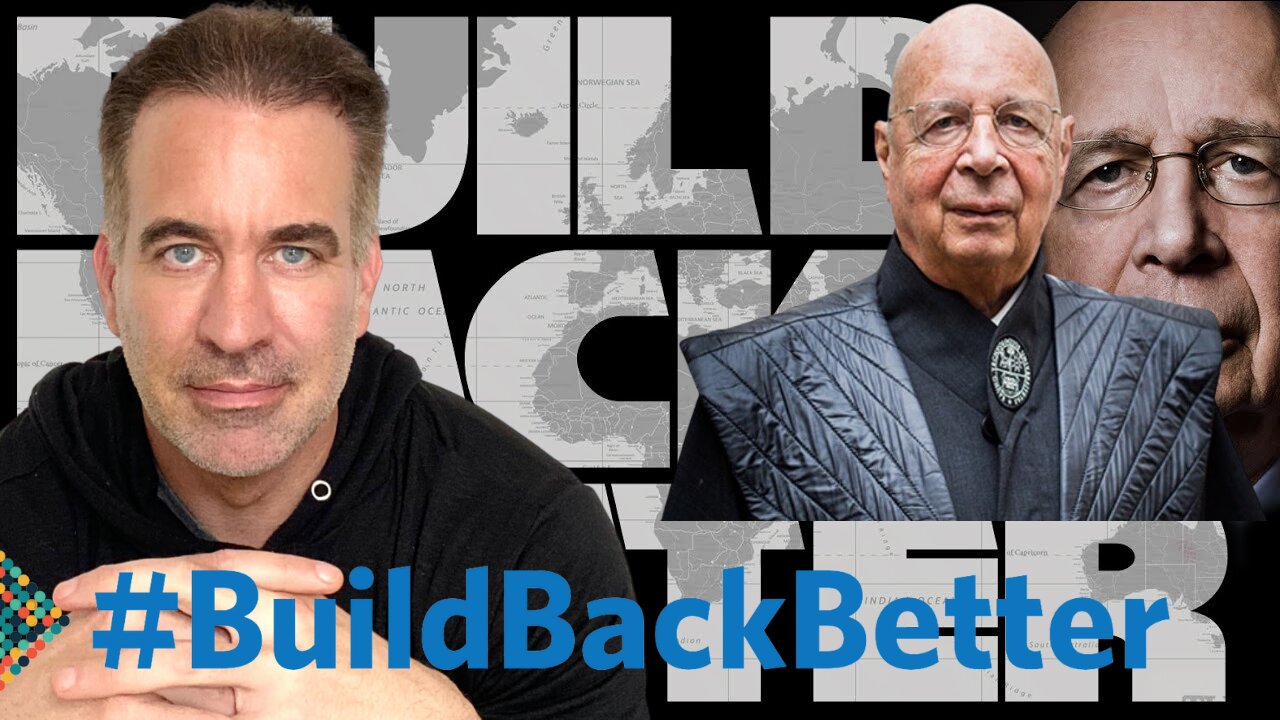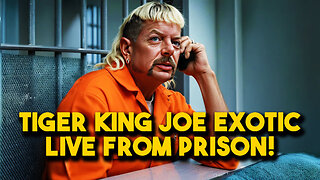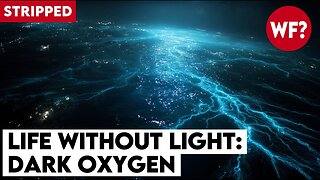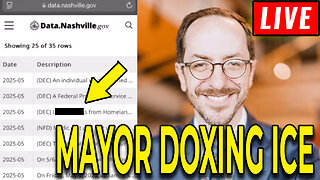Premium Only Content

BUILD-BACK-BETTER?
There is a man going around and he decides who to blame and who to be free!
YOU WILL OWN NOTHING AND BE HAPPY!
1. https://www.whitehouse.gov/build-back-better/
2. https://www.weforum.org/
3. https://www.unepfi.org/
4. https://www.unep.org/explore-topics/green-economy/what-we-do/finance-initiative
The Great Reset is the name of the 50th annual meeting of the World Economic Forum (WEF), held in June 2020. It brought together high-profile business and political leaders, convened by Charles, Prince of Wales, and the WEF, with the theme of rebuilding society and the economy in what proponents believe is a sustainable way following the COVID-19 pandemic.[1]
WEF chief executive officer Klaus Schwab described three core components of the Great Reset: the first involves creating conditions for a "stakeholder economy"; the second component includes building in a more "resilient, equitable, and sustainable" way—based on environmental, social, and governance (ESG) metrics which would incorporate more green public infrastructure projects; the third component is to "harness the innovations of the Fourth Industrial Revolution" for the public good.[2][3] In her keynote speech opening the dialogues, International Monetary Fund director Kristalina Georgieva listed three key aspects of the sustainable response: green growth, smarter growth, and fairer growth.[4][1] At the launch event for the Great Reset, Prince Charles listed key areas for action, similar to those listed in his Sustainable Markets Initiative, introduced in January 2020. These included the re-invigoration of science, technology, and innovation, a move towards net zero transitions globally, the introduction of carbon pricing, re-inventing longstanding incentive structures, rebalancing investments to include more green investments, and encouraging green public infrastructure projects.[1]
In June 2020, the theme of the January 2021 51st World Economic Forum Annual Meeting was announced as "The Great Reset", connecting both in-person and online global leaders in Davos, Switzerland with a multi-stakeholder network in 400 cities around the world.[5] The Great Reset was also to be the main theme of the WEF's summit in Lucerne in May 2021.[6]
According to The New York Times,[7] the BBC, The Guardian, Le Devoir, and Radio Canada, baseless conspiracy theories spread by American far-right groups linked to QAnon surged at the onset of the Great Reset forum and increased in fervor as leaders such as U.S. President Joe Biden and Canadian Prime Minister Justin Trudeau[8] incorporated ideas based on a "reset" in their speeches.
In June 2020, Klaus Schwab, who founded the World Economic Forum (WEF) in 1971 and is currently its CEO, described the three core components of the Great Reset.[2] The first includes creating conditions for a "stakeholder economy"; improving policies and agreements on taxes, regulations, fiscal policies, and trade to result in "fairer outcomes".[2] The second component addresses how the large-scale pandemic spending programs with private investments and pension funds could improve on the old system by building one that is more "resilient, equitable and sustainable" over the long term by "building green urban infrastructure and creating incentives for industries to improve their track record on environmental, social and governance (ESG) metrics". The third component of a Great Reset agenda is to "harness the innovations of the Fourth Industrial Revolution" for the public good.[2] A July 2020 non-fiction by Schwab and economist Thierry Malleret develops the plan in more detail.
According to Prince Charles, the economic recovery must put the world on a path to sustainability, which would include carbon pricing. Prince Charles emphasized that the private sector would be the main driver of the plan.[1] The market should adapt to the current reality by aiming for fairer results, ensuring that investments are aimed at mutual progress including accelerating ecologically friendly investments, and starting a fourth industrial revolution, creating digital economic and public infrastructure.[1]
According to Klaus Schwab, they would not change the economic system, but rather improve it to what he considers to be "responsible capitalism". WHAT IS RESPONSIBLE CAPITALISM?
The Brookings Institute described their three-point plan in response to the COVID-19 crisis; response, recovery and reset. For the near term, it involves response. In the medium term, this involves "rebuilding economic and social activity in a manner that protects public health, promotes societal healing and preserves the environment." The reset is for systems over the long term of establishing through our "collective imagination" a great reset; a "new equilibrium among political, economic, social and environmental systems toward common goals."
6AFKZVKBDXKA8HOF
-
 13:48
13:48
NONCONFORMING-CONFORMIST
1 year ago $0.01 earnedThe World As We Currently Know Will Change Forever
351 -
 LIVE
LIVE
The Bubba Army
20 hours agoTiger King Joe Exotic Live from Prison - Bubba the Love Sponge® Show | 5/30/25
3,603 watching -
 23:46
23:46
The Why Files
1 day agoDark Oxygen | CIA Deep Sea Secret Could Trigger the Next Extinction Event (STRIPPED)
31.6K32 -
 1:54:52
1:54:52
FreshandFit
9 hours agoThe Future Of Dating And Money With Coach Greg Adams
50.5K9 -
 16:42
16:42
Dr. Nick Zyrowski
21 days agoFasting Is THE Cure - NO FOOD FOR 7 DAYS Heals Everything!
24.5K24 -
 1:10:44
1:10:44
Savanah Hernandez
10 hours agoThe GOP Sucks So Bad They Demoralized The Most Energetic Pro-America Fighter We Have
162K100 -
 3:03:55
3:03:55
TimcastIRL
10 hours agoFBI To Release Of EPSTEIN PRISON Tapes They Say PROVES He UNALIVED Himself | Timcast IRL
244K212 -
 2:49:00
2:49:00
Laura Loomer
10 hours agoEP124: They're Saving The Dogs! They're Saving The Cats!
53.9K23 -
 1:21:23
1:21:23
T-SPLY
8 hours agoDemocrat Mayor Of Nashville Caught Doxing Ice Agents!
49.7K15 -
 3:16:25
3:16:25
Barry Cunningham
12 hours agoPRESIDENT TRUMP: NOTHING CAN STOP WHAT IS COMING! ARE YOU READY?
108K77